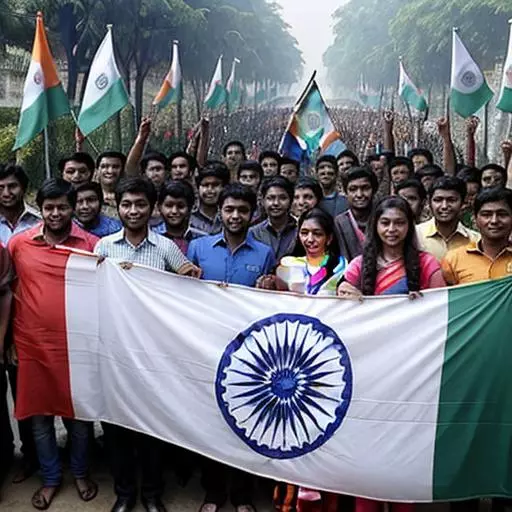Introduction
In a nation as diverse and dynamic as India, the active participation of youth in politics is not just a desirable aspect but a necessity. The youth of India represent a vast and vibrant demographic, and their involvement in politics is crucial for the nation’s development and progress. This blog aims to shed light on the significance of youth empowerment in politics and the various ways in which young leaders can be encouraged to take an active role in shaping the country’s future.
The Current Scenario
India is often described as the world’s largest democracy, and it boasts a youthful population with a median age of around 28 years. Despite this, the political landscape has been dominated by older leaders and established parties for decades. This underrepresentation of young voices can lead to a disconnect between government policies and the aspirations of the youth.
Why Youth Empowerment Matters
- Fresh Perspectives: Young leaders bring fresh ideas and perspectives to the table. They are more likely to understand and advocate for issues that directly affect their generation, such as education, employment, and climate change.
- Innovation: Young minds are often more innovative and adaptable, which can be particularly beneficial in addressing contemporary challenges. They can leverage technology and modern communication methods to engage with constituents effectively.
- Bridge to the Future: Youth empowerment in politics ensures that the government remains relevant and in tune with the evolving needs and aspirations of the nation. Young leaders act as a bridge to the future.
Ways to Encourage Youth in Politics
- Education and Awareness: Initiatives should be taken to educate young people about the political system, the importance of civic participation, and the avenues available for political involvement. This can be achieved through school curricula, workshops, and online resources.
- Mentorship Programs: Establishing mentorship programs where experienced politicians guide and mentor aspiring young leaders can provide invaluable support and guidance.
- Youth Wings of Political Parties: Political parties can create dedicated youth wings that actively involve young people in party activities, decision-making processes, and election campaigns.
- Reserved Seats: Reserving a certain percentage of seats in legislative bodies for young candidates can be a proactive step in encouraging youth participation.
- Grassroots Engagement: Young leaders should start at the grassroots level, engaging with local issues and communities. Building a strong foundation at this level can lead to a promising political career.
- Encouraging Independent Candidates: Encouraging and supporting independent young candidates can diversify the political landscape and break away from traditional party politics.
Challenges and Solutions
Youth involvement in politics faces several challenges, including limited resources, lack of experience, and the influence of money and muscle power in politics. However, these challenges can be addressed through:
- Campaign Finance Reforms: Implementing strict campaign finance regulations can level the playing field, reducing the influence of money in politics.
- Training and Capacity Building: Providing training and capacity-building programs can equip young leaders with the skills and knowledge necessary for effective political engagement.
- Transparency and Accountability: Promoting transparency and accountability in politics can help in curbing corrupt practices and ensure a fair political environment.
Conclusion
Youth empowerment in politics is not just a matter of democratic representation; it’s about securing the future of the nation. Encouraging young leaders in India involves a multi-faceted approach, from education and mentorship to political reforms and grassroots engagement. By actively involving the youth in the political process, India can tap into its most valuable resource and ensure that its democracy remains vibrant and responsive to the evolving needs of its people. It’s time for India to embrace the energy, enthusiasm, and fresh ideas that its youth can bring to the political arena.

